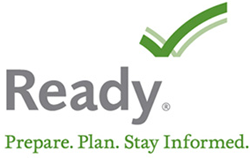Our Critical Incident Stress Management (CISM) Team is available to assist groups and individuals, upon their request, exposed to critical incidents and related stress. The team's primary responsibility is to serve the fire and emergency medical services personnel within the County. Cattaraugus County CISM Team is organized under and overseen by the Cattaraugus County Office of Emergency Services.
About the Team
Non-profit team of volunteers.
All services provided at no cost to the recipient.
Goals of the CISM Team:
- Mitigate the impact of traumatic stress
- Accelerate recovery
- Provide education about stress and specific coping techniques
Members are CISM trained and experienced firefighters, EMS personnel, clergy, and mental health professionals.
Request Help
All fire departments and independent EMS agencies are encouraged to request the CISM Team for help.
Examples of incidents the CISM Team can help with:
- Fatalities
- Serious injuries
- Pediatric calls
- Calls with multiple patients
- Cumulative stress from response
Requesting the Team
Monday--Friday, 8 a.m. to 4 p.m.:
Contact Cattaraugus County Office of Emergency Services at (716) 938-2213
Off-hours (24/7):
Contact Emergency Services Director Chris Baker at (716) 498-0697 or Cathi Gross at (716) 244-7651
Request for team activation must come from the Fire Chief
- Requests from independent EMS agencies must come from the EMS agency Administrator
Request the team as soon as you determine a need for assistance. CISM debriefing should occur approximately 48 hours after the incident.
When making a request, please be prepared to give us the following information:
- Date, time, and general information about the incident
- Approximately number of responders and names of agencies (fire, EMS, police, etc.) involved
- Primary contact name and phone number to set up the debrief
Critical Incident Stress
Critical Incident Stress is the aftershock of dealing with an emotional, traumatic, or life threatening event. It is the NORMAL response of the body and mind to overwhelming stress.
- Acute stress reaction which may happen while you are involved with the situation.
- Delayed stress reaction where the stress responses occur hours, days, or weeks afterward.
Symptoms of Acute Stress may include:
Panic, Hyperventilation, Numbness, Chest Pain, Nausea, Vomiting, Elevated blood pressure and pulse, Inability to function, Headache, Anxiety, Palpitations
Symptoms of Delayed Stress may include:
Anxiety, Depression, Sensitivity to odors, Inability to control emotions, Irritability, Crying spells, Increased/ decreased appetite, Weight loss/ gain, Headaches, Flashbacks, Nightmares, Insomnia, Poor concentration, Severe fatigue, Increased alcohol/ drug consumption, Guilt, Obsessive thoughts of the incident, Loss of sense of humor, Increased use of morbid humor
Below you can select and download the fire department and EMS quick reference sheet for CISM Team Activation or the CISM Team brochure.
- CISM Brochure 153.76 KB
- CISM Information for Fire Departments 265.54 KB
- Application to Join the Cattaraugus County CISM Team 254.17 KB

